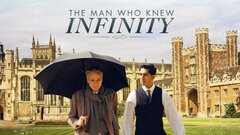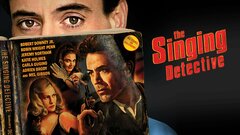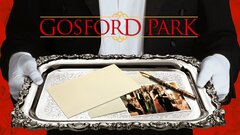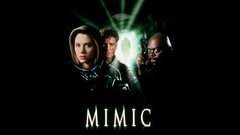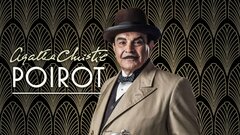Tall and slender with dark good looks and a rich, plummy voice, Jeremy Northam was already established as a stage and television performer in his native Britain when he landed his breakthrough screen role as the suavely seductive villain stalking Sandra Bullock in the cyber thriller "The Net" (1995). The son of a professor and a potter, he spent his formative years in Bristol and Cambridge. After completing his college education, Northam enrolled at the Bristol Old Vic Theatre School but left before completing the three-year program when he began landing TV roles like the soldier in the WWI drama "Journey's End" (1988).
The following year, the limelight shone on him briefly when he understudied and then replaced Daniel Day-Lewis in the National Theatre production of "Hamlet." Additional stage roles followed, including an award-winning turn in "The Voysey Inheritance" and a supporting role in "The Gift of the Gorgon" (1992), starring married couple Judi Dench and Michael Williams as well as additional work at the Royal Shakespeare Festival. As his stage presence increased, Northam lent his presence to other small screen roles before landing his first major feature role, as Hindley Earnshaw in the uneven remake of "Emily Bronte's Wuthering Heights" (1992). That film met with a derisive critical reaction in England and was relegated to TV in America (it aired on TNT in 1994).
After his strong performance in "The Net," Northam seemed on the verge of being typecast as cads when he portrayed Beacus Penrose who beds and abandons the titular artist played by Emma Thompson in the biopic "Carrington" (1995). Switching gears, however, he excelled in the real-life role of a man with dual personalities, the reclusive composer Peter Warlock and his bete noir, the dyspeptic music critic Philip Heseltine in "Voices/Voices From a Locked Room" (also 1995). Further demonstrating his range, Northam cut a dashing romantic figure as Mr. Knightly to Gwyneth Paltrow's "Emma" (1996) before stumbling a bit in both "Mimic" (1997), as a scientist, and Sidney Lumet's remake of "Gloria" (1999), as a gangster.
While his onscreen roles offered little challenges to the actor, he found success as a buttoned-up real estate agent who falls in with some free spirits in the British telefilm "The Tribe" (1998) and in his return to the London stage playing a gay obstetrician in "Certain Young Men" (1999). In fact, 1999 would prove to be a key year for the actor, with high profile, critically-praised performances in three films. The Sundance favorite "Happy, Texas" cast him opposite Steve Zahn as a pair of escaped convicts who seek refuge in the titular town where they are mistaken for a gay couple.
In David Mamet's remake of "The Winslow Boy," Northam anchored the film as the wily barrister defending the boy accused of theft who also harbored unexpressed romantic yearnings for the Winslow daughter (Rebecca Pidgeon). Rounding out the trio of movies was Oliver Parker's period adaptation of Oscar Wilde's "An Ideal Husband," with the actor as a married politician who is haunted by a youthful indiscretion. Continuing to corner the market in period films, Northam joined the cast of the Merchant Ivory production "The Golden Bowl" (2000), playing an Italian prince. He followed up with a fine turn as actor-composer Ivor Novello in the Robert Altman-directed period mystery "Gosford Park" (2001) and as an 19th-century poet in Neil LaBute's adapation of A S Byatt's novel "Possession" (2002).
After a much discussed stint playing Dean Martin opposite Sean Hayes as Jerry Lewis in the CBS biopic "Martin & Lewis" (2002) in which Northam ably captured the singer-actor's suave charisma if not his naughty-boy appeal, Notham appeared in the Mel Gibson-produced adaptation of "The Singing Detective" (2003) and played a French army officer hounding Michael Caine in "The Statement" (2003). He next played Walter Hagen in the biopic "Bobby Jones, Stroke of Genius" (2004), which told the story of the iconic golf champion (Jim Caviezel) who quit the sport on top at age 28.


